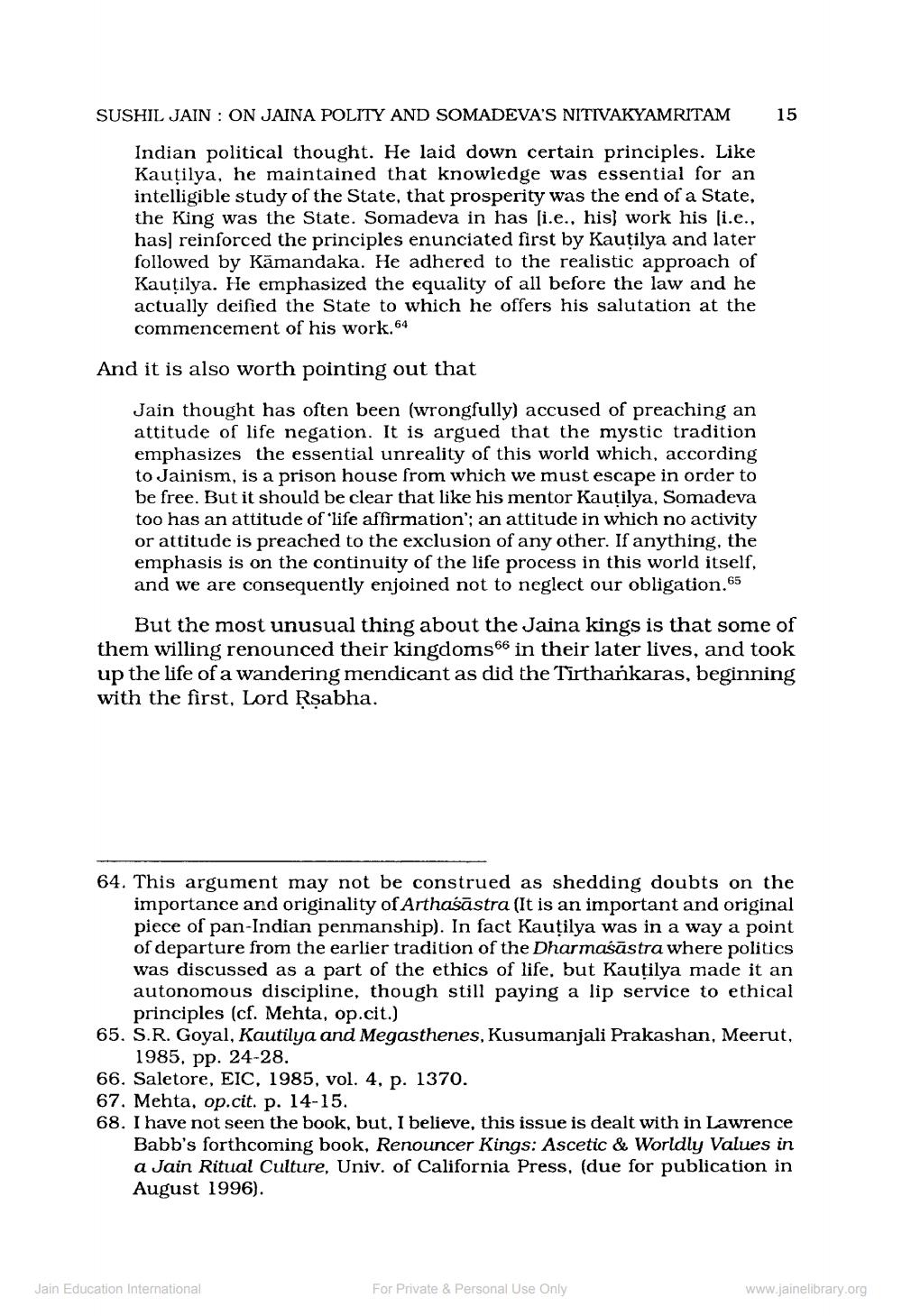________________
SUSHIL JAIN : ON JAINA POLITY AND SOMADEVA'S NITIVAKYAMRITAM
15
Indian political thought. He laid down certain principles. Like Kautilya, he maintained that knowledge was essential for an intelligible study of the State, that prosperity was the end of a State, the King was the State. Somadeva in has si.e., his work his li.e., has) reinforced the principles enunciated first by Kautilya and later followed by Kamandaka. He adhered to the realistic approach of Kautilya. He emphasized the equality of all before the law and he actually deified the State to which he offers his salutation at the commencement of his work.64
And it is also worth pointing out that
Jain thought has often been (wrongfully) accused of preaching an attitude of life negation. It is argued that the mystic tradition emphasizes the essential unreality of this world which, according to Jainism, is a prison house from which we must escape in order to be free. But it should be clear that like his mentor Kautilya, Somadeva too has an attitude of life affirmation'; an attitude in which no activity or attitude is preached to the exclusion of any other. If anything, the emphasis is on the continuity of the life process in this world itself, and we are consequently enjoined not to neglect our obligation.65
But the most unusual thing about the Jaina kings is that some of them willing renounced their kingdoms 66 in their later lives, and took up the life of a wandering mendicant as did the Tirthankaras, beginning with the first, Lord Rşabha.
64. This argument may not be construed as shedding doubts on the
importance and originality of Arthaśāstra (It is an important and original piece of pan-Indian penmanship). In fact Kautilya was in a way a point of departure from the earlier tradition of the Dharmaśāstra where politics was discussed as a part of the ethics of life, but Kautilya made it an autonomous discipline, though still paying a lip service to ethical
principles (cf. Mehta, op.cit.) 65. S.R. Goyal, Kautilya and Megasthenes, Kusumanjali Prakashan, Meerut,
1985, pp. 24-28. 66. Saletore, EIC, 1985, vol. 4, p. 1370. 67. Mehta, op.cit. p. 14-15. 68. I have not seen the book, but, I believe, this issue is dealt with in Lawrence
Babb's forthcoming book, Renouncer Kings: Ascetic & Worldly Values in a Jain Ritual Culture, Univ. of California Press, (due for publication in August 1996).
Jain Education International
For Private & Personal Use Only
www.jainelibrary.org




